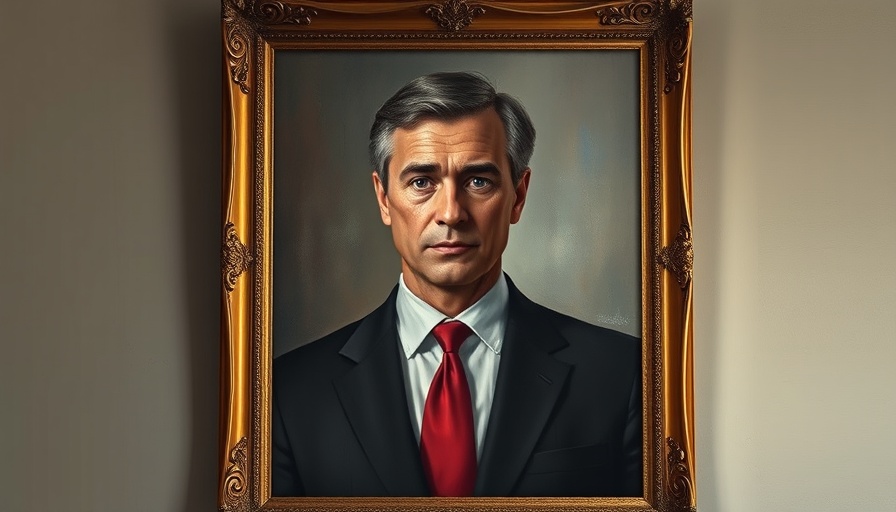
Why Trump's Colorado Portrait Sparks Controversy
The recent uproar over President Donald Trump’s portrait in the Colorado State Capitol shines a light on a timeless human truth: people are often uncomfortable with the way they are portrayed. Trump’s outcry, claiming that the painting is ‘purposefully distorted,’ reveals more about self-perception than artistic expression.
Art, Perception, and Human Nature
The artist behind the painting, Sarah Boardman, set out to present a neutral depiction of the former president when she completed the portrait back in 2019. In a climate saturated with political division, Boardman aimed to create artwork that could stand the test of time, devoid of contemporary biases. However, Trump’s reaction has raised questions about self-image and public perception, which resonate beyond politics.
Psychology of Self-Image: Why We Dislike Our Own Portraits
This situation isn’t purely anecdotal; there is psychology at play. Research indicates that individuals commonly prefer pictures that mirror their own perceptions of themselves—often seen in reflections or frequently viewed images. For Trump, a figure who has built much of his public persona around image management, the discomfort with this portrait underscores a more profound struggle with self-enhancement biases. Many people tend to see themselves more favorably than reality suggests, favoring enhanced images when presented with options. This normalization of altered perceptions may partly explain his reaction to Boardman’s portrayal.
A Fractured Mirror: The Meaning of Public Image in Politics
Trump's public personas as a businessman, celebrity, and political leader have all been heavily crafted, often aimed at presenting an appealing image to his supporters and the public. The desire to have flattering representations reinforces the psychological principles surrounding self-image, magnifying the importance of how leaders are depicted across media and art. The fallout from this seemingly trivial portrait is indicative of a deeper societal trend where public figures leverage image management strategies to control their narrative.
Conclusion: The Power of Image in Society
Trump's reaction to his Colorado portrait serves as a reminder that the representation of leaders matters. It reflects not only personal sentiment but a broader commentary on societal values around image and truth. As we continue to consume and evaluate representations of individuals in leadership roles, it is crucial to recognize the impact of public perception and the psychological underpinnings that define our understanding of image. In the fact of such representations, be it art or media, lies the power of narrative.
 Add Row
Add Row  Add
Add 




Write A Comment